10 start with T start with T
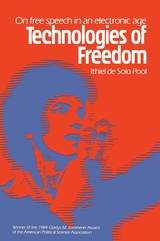
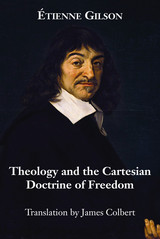

Freedom is a fundamental Christian theological category, as much a challenge to construct a new way of seeing oneself and others as it is an announcement of what Christ has already done for us in his death and resurrection. Liberation theology is, most simply, the effort to spell out what such freedom means for Christians in the twentieth and twenty-first centuries.
This book has as its principle premise the conviction that if we are to construct a North American liberation theology we must begin listening to and understanding Latin American theology not so much as a model to be slavishly followed but as a challenge to our own cultural, political, and even religious assumptions. The focus thus is not so much on the theoretical meaning of Christian freedom but on its practice, and more exactly its praxis, that is to say the dialectic between theory and practice.
After focusing on the creation and development of liberating theological methods and sources and, above all, the revitalization and renewal of structures that will contribute to the development of a liberated and liberating church, Fr. Hennelly ends with an analysis of the most recent and the most important vatican document on liberation theology, The Instruction of Christian Freedom and Liberation, which he sees as an acknowledgement by the universal church that the theme of liberation is central to the meaning of Christian theology.
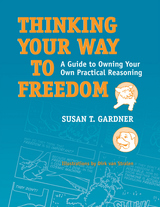
Thinking Your Way to Freedom is a critical-thinking textbook with a difference. Rather than focusing exclusively on improving college students’ academic achievement, Susan Gardner seeks to dramatically change how students think through issues that are important in their lives beyond school. Gardner created 66 original and entertaining comic strips—featuring her dogs, Diva and Ben—that add a light touch as they encourage intellectual and personal autonomy. Through a clear step-by-step method of practical reasoning, students are taught how to think impartially and how to neutralize invisible biases that limit their freedom of thought and action. With the help of Diva and Ben, readers learn to evaluate the strengths of arguments and to recognize fallacies, all the while avoiding the paralyzing effects of relativism.
Thinking Your Way to Freedom includes the writing of short essays so that students can improve their critical thinking and writing at the same time. A Teacher’s Manual for this book will be available online.
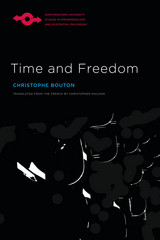
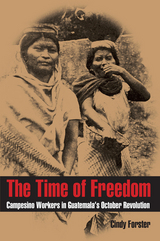
"The time of freedom" was the name that plantation workers—campesinos—gave to Guatemala’s national revolution of 1944–1954. Cindy Forster reveals the critical role played by the poor in organizing and sustaining this period of reform.
Through court records, labor and agrarian ministry archives, and oral histories, Forster demonstrates how labor conflict on the plantations prepared the ground for national reforms that are usually credited to urban politicians. She focuses on two plantation zones that generated exceptional momentum: the coffee belt in the highlands around San Marcos and the United Fruit Company’s banana groves near Tiquisate. Although these regions were unlike in size and complexity, language and race, popular culture and work patterns, both erupted with demands for workers’ rights and economic justice shortly after the fall of Castañeda in 1944.
A welcome balance to the standard "top-down" histories of the revolution, Forster’s sophisticated analysis demonstrates how campesinos changed the course of the urban revolution. By establishing the context of grassroots mobilization, she substantially alters the conventional view of the entire revolution, and particularly the reforms enacted under President Albenz.

Before 1854, most Northerners managed to ignore the distant unpleasantness of slavery. But that year an escaped Virginia slave, Anthony Burns, was captured and brought to trial in Boston--and never again could Northerners look the other way. This is the story of Burns's trial and of how, arising in abolitionist Boston just as the incendiary Kansas-Nebraska Act took effect, it revolutionized the moral and political climate in Massachusetts and sent shock waves through the nation.
In a searching cultural analysis, Albert J. von Frank draws us into the drama and the consequences of the case. He introduces the individuals who contended over the fate of the barely literate twenty-year-old runaway slave--figures as famous as Richard Henry Dana Jr., the defense attorney, as colorful as Thomas Wentworth Higginson and Bronson Alcott, who led a mob against the courthouse where Burns was held, and as intriguing as Moncure Conway, the Virginia-born abolitionist who spied on Burns's master.
The story is one of desperate acts, even murder--a special deputy slain at the courthouse door--but it is also steeped in ideas. Von Frank links the deeds and rhetoric surrounding the Burns case to New England Transcendentalism, principally that of Ralph Waldo Emerson. His book is thus also a study of how ideas relate to social change, exemplified in the art and expression of Emerson, Henry Thoreau, Theodore Parker, Bronson Alcott, Walt Whitman, and others.
Situated at a politically critical moment--with the Whig party collapsing and the Republican arising, with provocations and ever hotter rhetoric intensifying regional tensions--the case of Anthony Burns appears here as the most important fugitive slave case in American history. A stirring work of intellectual and cultural history, this book shows how the Burns affair brought slavery home to the people of Boston and brought the nation that much closer to the Civil War.
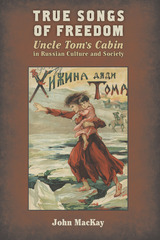
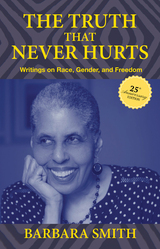
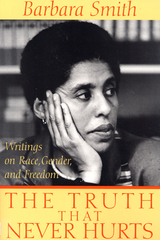
Smith’s essay “Toward a Black Feminist Criticism,” is often cited as a major catalyst in opening the field of black women’s literature. Pieces about racism in the women’s movement, black and Jewish relations, and homophobia in the Black community have ignited dialogue about topics that few other writers address. The collection also brings together topical political commentaries on the 1968 Chicago convention demonstrations; attacks on the NEA; the Anita Hill–Clarence Thomas Senate hearings; and police brutality against Rodney King and Abner Louima. It also includes a never-before-published personal essay on racial violence and the bonds between black women that make it possible to survive.
READERS
Browse our collection.
PUBLISHERS
See BiblioVault's publisher services.
STUDENT SERVICES
Files for college accessibility offices.
UChicago Accessibility Resources
home | accessibility | search | about | contact us
BiblioVault ® 2001 - 2024
The University of Chicago Press









